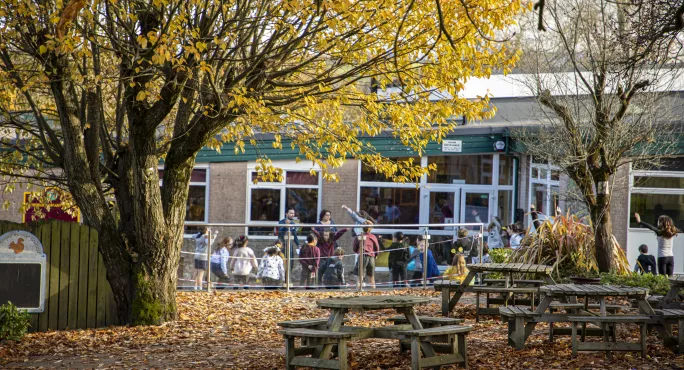Levelling Up: Bids sought for new free schools drive

The government is seeking bids from providers to set up 75 new free schools and standalone sixth forms, the Departmnent for Education announced today.
The DfE said it wants to set up as many as 15 mainstream free schools in some of the 55 Education Investment Areas (EIAs) that were chosen for extra intervention in its Levelling Up White Paper.
And it says that a new wave of up to 60 special and alternative-provision free schools will begin opening from September 2025 as well.
- SEND: Government to pledge 30,000 new school places
- Revealed: The £643m black hole in SEND funding
- DfE: Financial future of SEND system is fragile
The move comes after the chancellor committed to providing tens of thousands of new school places for pupils with special needs, backed with a £2.6 billion funding pot, in last year’s Budget and spending review.
Local authorities across England will be able to bid for the special schools, and the government said funding would be allocated according to “demonstrated need” for specialist places, and where new free schools are most required.
New free schools under Levelling Up agenda
For the alternative provision (AP) free schools, the government says it will be prioritising areas where none of the existing AP schools are currently rated “good” or “outstanding” by Ofsted, or where no AP schools currently exist.
More guidance on the mainstream school application process will come next month, but the DfE says it is looking to meet the government’s aim to open a targeted number of academically focused 16 to 19 free schools in the areas where they are “most needed to increase the numbers of disadvantaged young people progressing to top universities”
Groups have until 16 September to register their interest in setting up the schools.
School leaders welcomed the new plans, but warned the government away from creating ”super-selective” sixth forms.
Julie McCulloch, director of policy at the Association of School and College Leaders (ASCL) union, said the plans “gave the impression this may be the case”
She added: “As the chair of the Social Mobility Commission, Katharine Birbalsingh, said on Thursday in her inaugural speech, social mobility should not be just about making elite pathways for a few but should work for a wider range of people.
“The danger of super-selective sixth forms is that they will simply take the most academically able young people from existing sixth-form provision with consequent damage to those institutions and a demoralising impact on other young people who do not make the cut.
“The government must recognise that public money should be spent on improving the prospects of all young people rather than creating a ladder of success for a lucky few.”
Earlier this year, it was revealed that Eton College and Star Academies were planning to open three new state sixth-form colleges in Oldham, Middlesbrough and Dudley - all of which are EIAs.
Kevin Courtney, joint general secretary of the NEU teaching union, said the plans showed that the government had “fallen back into its comfort zone”.
He added: “Where new schools are needed then they should be built, but decisions should be based on need, with schools rooted in the local community.
“Sadly the government has removed the ability of local authorities to open new schools where they are needed, and at the same time cut funding for the improvements needed in existing schools. It would be extremely generous to describe this policy as giving with one hand and taking with the other, since very little is being offered, while much has been taken away.”
The DfE said its latest plans would create up to 14,000 extra school places “for pupils facing the biggest challenges in their education”.
The education secretary, Nadhim Zahawi, said: “All children have the right to a high-quality education. Parents should feel confident that their local school works for their child, no matter where they live or their ability.
“From mainstream education which can provide for every need, to specialist teachers and equipment in tailored settings, our new schools across the country will continue to make sure that every child, in every corner of the country, gets the support they need to succeed.”
The announcement comes as new data reveals that the number of pupils in English schools has risen by 88,000 in the past year.
The new data also shows that the number of young people in local authority-commissioned alternative provision has increased by 3,000.
When places in state-funded mainstream, special or AP schools are not available, local authorities fund alternative provision, and this can include places in independent special schools and AP, FE colleges and tuition.
The number of pupils in state special schools has risen by about 8,000, while the figure in pupil referral units has decreased by 1,000.
You need a Tes subscription to read this article
Subscribe now to read this article and get other subscriber-only content:
- Unlimited access to all Tes magazine content
- Exclusive subscriber-only stories
- Award-winning email newsletters
Already a subscriber? Log in
You need a subscription to read this article
Subscribe now to read this article and get other subscriber-only content, including:
- Unlimited access to all Tes magazine content
- Exclusive subscriber-only stories
- Award-winning email newsletters



